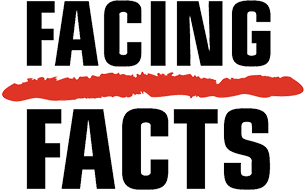Improving data literacy and using the data that we have
(cite as: Perry, J. (2019) ‘Connecting on Hate Crime Data in Europe’. Brussels: CEJI. Design & graphics: Jonathan Brennan.)
There has been a subtle and welcome shift in focus by IGOs from prioritising the production of comparable data across the EU to improving the comparability and comprehensiveness of hate crime data at the national level in terms of comparisons over time and across hate crime types.[1] Efforts to better align international concepts of hate crime and hate speech have also supported the development of clearer and more concise national monitoring definitions that define and separate hate crime and hate speech.[2]
It would still seem too ambitious to aim for fully comparable data across all EU Member States, not least because successive reports by FRA and OSCE-ODIHR point out that differing legal concepts, as well as varied recording and data collection methods, make cross-European comparisons almost impossible. Instead, IGOs could explore which crime types and bias motivation combinations might yield illuminating comparative data. For example, national crime survey and official data on racist homicides, or serious racist assaults could be the most comparable combination and give an interesting indication of the prevalence of these types of incidents while supporting broader efforts to align concepts and approaches across Europe.
Although it is the case that there is insufficient data to tell us about hate crime’s true prevalence in Europe, it is also true that after 10 years of focused efforts, there is a wealth of new information and data at the national and European level that can tell us about the impact of hate crime, the quality of the state response and specific groups’ experiences of the problem. For example, the rich data offered by EU MIDIS, OSCE Reporting and FRA’s specific reports is not known by many at the national level. More effort is needed to share this knowledge in ways that support national stakeholders to interpret it – also in the context of national data – with a view to taking meaningful and effective action. National stakeholders also need support to use existing data that evidences hate crime as a national problem and to neutrally, yet effectively, counter public skepticism about its worth as a policy priority. These points are further explored in the recommendations section.
« FINDINGS IV BACK TO TABLE OF CONTENTS FINDINGS VI »
[1] This has been a welcome focus of FRA and ODIHR’s joint data workshops and the recently launched ODIHR INFAHCT programme, see OSCE Office for Democratic Institutions and Human Rights (OSCE/ODIHR) (2018a, 29 August).
[2] See EU High Level Group on combating racism, xenophobia and other forms of intolerance (2018, November).


 Facing Facts is co-funded by the Citizens, Equality, Rights and Values Programme
Facing Facts is co-funded by the Citizens, Equality, Rights and Values Programme